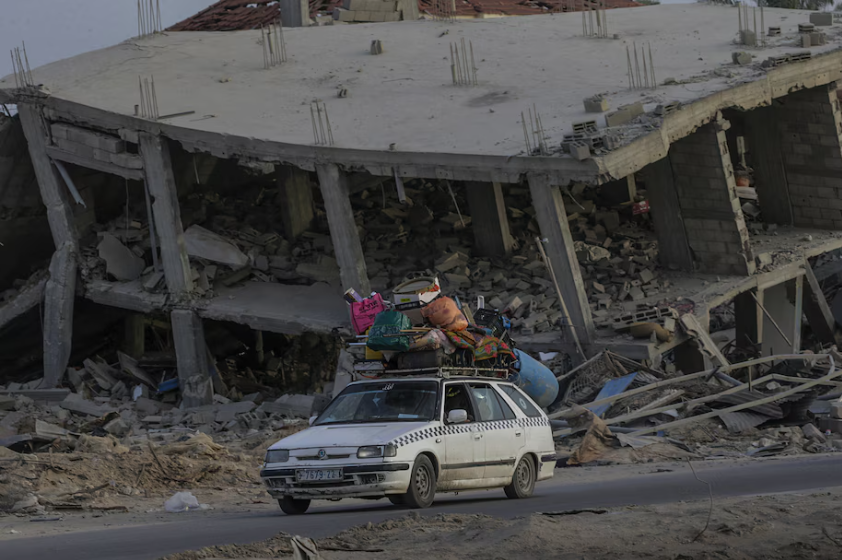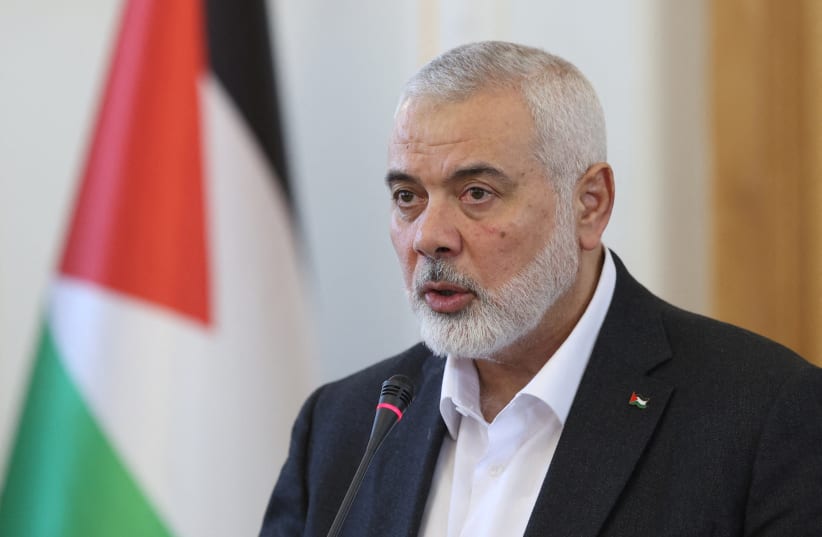This article is more than
1 year oldHamas surprise attack a ‘historic failure’ for Israeli intelligence services

Several hours after the incursion began, Hamas militants were still fighting gunbattles inside several Israeli communities near Gaza. Israel’s national rescue service said at least 40 people have been killed and hundreds wounded, making it the deadliest attack in the country in years.
The escalation comes against a backdrop of surging violence between Israel and Palestinian militants in the West Bank, which together with the Gaza Strip is part of the territories where Palestinians have long sought to establish a state.
It also comes at a time of political upheaval in Israel, which has been riven by deep divisions over moves to overhaul the judiciary in recent months.
David Khalfa, co-director of the North Africa and Middle East Observatory at French think tank the Fondation Jean-Jaurès, says Hamas is taking advantage of Israel's vulnerability to carry out its deadly "Operation Al-Aqsa Storm".
FRANCE 24: Why is this attack considered so unprecedented?
David Khalfa: The attack is unprecedented both in terms of its scale and its sophistication. Since the Yom Kippur War [on October 6, 1973, an Arab coalition of Egyptian and Syrian forces launched a surprise attack on Israel on Yom Kippur – the Jewish holy day of atonement, Ed.], Israel has never been confronted with a full-scale ground invasion [like this].
We are talking about Hamas commando forces – special forces operating deep inside Israeli territory – with a modus operandi of a real army. Hardened by battle, they are trained and equipped with modern tactical resources and fight in several places at a time.
They sent eight pickup trucks with around eight Islamist Hamas gunmen [in each] patrolling the streets of towns and villages into southern Israel, killing civilians at point-blank range and taking entire families hostage, including women and children.
This situation is completely unheard of. It is a massive surprise attack, a coordinated attack that requires a level of intelligence and preparation on the part of Hamas. Probably some logistical support, too, from Islamic Jihad on the one hand and Hezbollah and Iran on the other. That would go a long way towards explaining what is happening now.
Why did Israeli intelligence services not see this coming?
David Khalfa: It is a major failure for the Israeli intelligence services. A failure that could even be described as historic and without exaggerating, could be compared to what happened in 1973.
Israel is a country that is on permanent alert, ready to go into battle at any time. It is always on its toes. It is clear that there was a certain degree of unpreparedness, probably an error in the analysis and estimation on the part of Israeli intelligence services, but also in the preparation of Israeli special forces [for an attack like this].
It seems the Israeli army itself is in a state of shock. The country is in the fog of war, and the success of Hamas’s operation largely depends on an element of surprise, but also on joint army manoeuvres.
The attack was three-dimensional; it took place on land, sea and by air. That is probably what surprised the Israelis.
Israel is a country that relies on its technology to anticipate threats and neutralise them before they arise. It is clear that there was an issue regarding anticipation, and probably a problem in their analysis the threat level.
The scenario Israeli intelligence services were expecting was an invasion from the north, via Hezbollah in southern Lebanon. They were blindsided.
Why did Hamas choose to attack now?
David Khalfa: This terrorist operation comes at a time when Israel is facing an unprecedented political and institutional crisis. But also a crisis of identity, with Israeli society becoming fractured and polarised on a massive scale.
Hamas made no secret of its intention to capitalise on Israel’s vulnerability to carry out this kind of attack.
A national crisis has been destabilising Israel for several months now, with protests taking place every week. And then there is the 50th anniversary of the Yom Kippur War, which began yesterday, on October 6.
Hamas is clearly determined to follow in the footsteps [of the Arab coalition, Ed.] both symbolically and in terms of communication, with a determination to strike hard and strike fast.
And Israelis are both in a state of shock and astonishment.
Keywords
Newer articles
<p>The ceremony was held in Moscow amid a tense geopolitical situation and diplomatic rift with the West</p>
West has a decision to make – Putin
Hamas tells Qatari, Egyptian mediators it agrees to ceasefire proposal
Craig David, a hitmaker since 2000, is still getting audiences dancing
For Putin, Gaza is an endless gift
TikTok Ban Sparks Lawsuit Pitting National Security Concerns Against First Amendment Rights
Bombshell new theory on Titan sub disaster
Doja Cat’s pre-Met Gala wardrobe malfunction
Russia pounds Ukraine with biggest airstrikes in weeks
Woman'sCanadian citizenship revoked after 32 years amid 'error'




